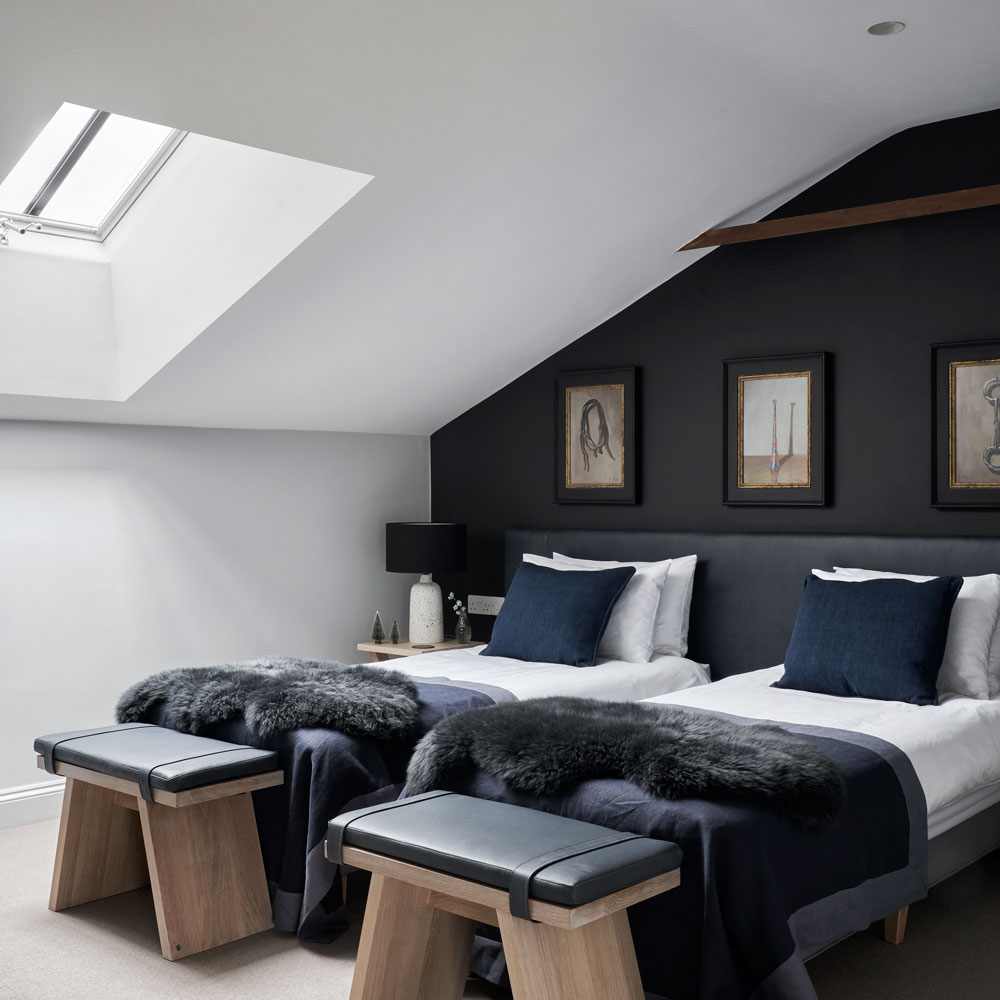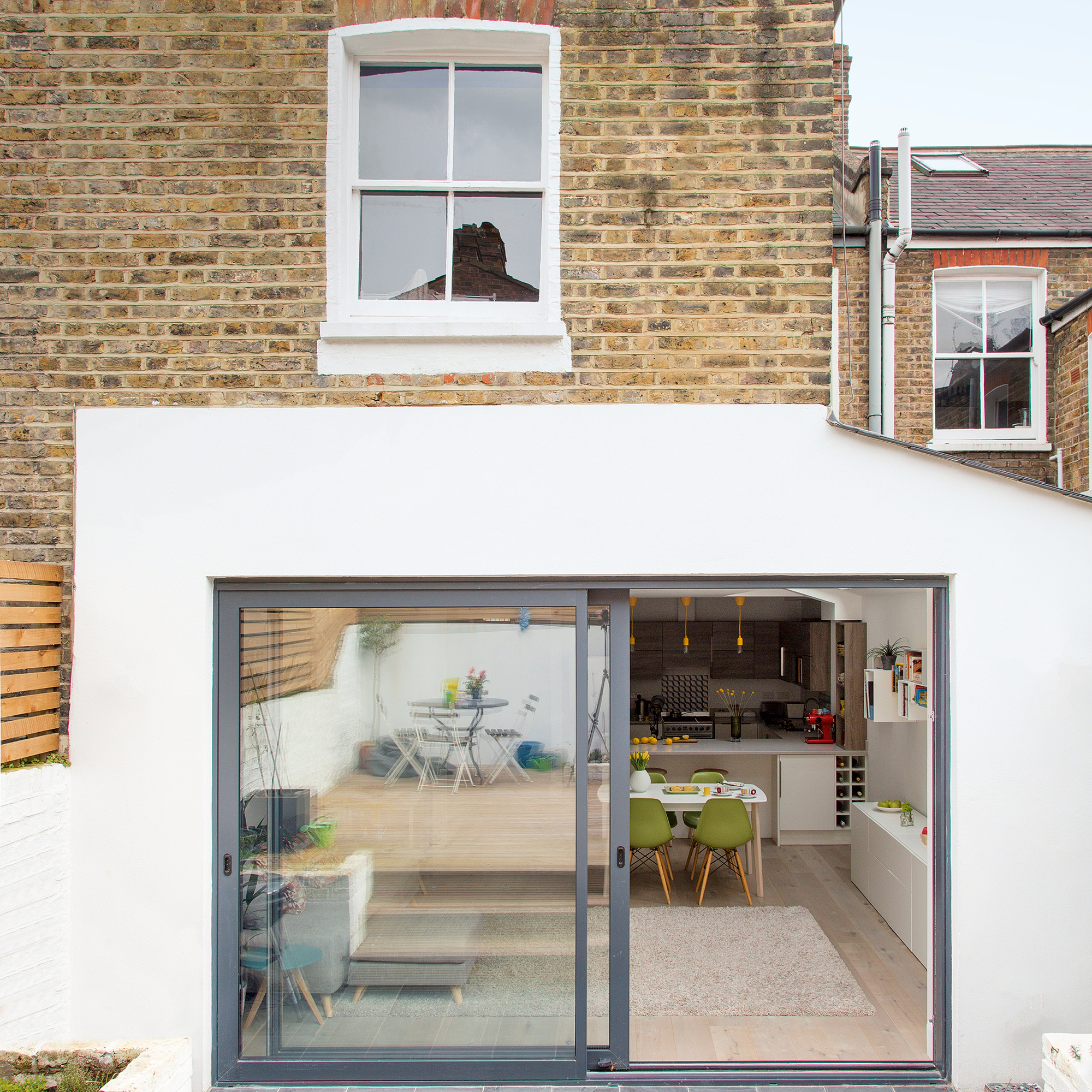Insurance for building works - your questions answered
The experts explain what this insurance is, why you need it and what steps you should be taking

If you're planning on improving your home then there's one step you certainly shouldn't skip - looking into insurance for building works.
Although a standard home insurance policy will normally cover redecoration and DIY, it won’t cover any issues caused during bigger jobs such as loft conversions or building an extension.
We've spoken to the experts to break down if you're going to need extra insurance, whether your builder will have their own insurance, if you need to update your regular home insurance, as well as what will be covered in these insurance for building works policies.
What is building works insurance?

Standard home insurance is unlikely to cover major works such as extensions because building work increases the chances of something going wrong and you needing to make a claim.
For example, a wall might collapse, a fire might break out, or building equipment could be stolen. At certain times during the work your home may be structurally unstable, exposed to the elements or more vulnerable to theft.
You’ll normally need a specialist insurance policy if the renovation or building work means your home will not be lived in for more than 30 days. You’ll also need specialist cover if the works are extensive or there will be expensive equipment and materials kept at the property.

‘It's important to tell your home insurer if you are intending to do building work or renovations to your property, as this increases the risk of something unexpected happening to your home and its contents,' explains Syed Jamal, head of home underwriting at Markerstudy Insurance.
Get the Ideal Home Newsletter
Sign up to our newsletter for style and decor inspiration, house makeovers, project advice and more.
‘Home insurers are likely to take different approaches when this happens and, depending on the extent of works taking place, may impose additional requirements or exclusions to your home insurance policy.'
'To give some more detail, a fairly typical insurer response for properties under the course of construction, or properties unoccupied during completion of minor building works, would be to decline cover on their standard Home Insurance Policy.’
What insurance do I need for building works?

Most insurance for building works will cover some types of minor building on a standard home insurance policy. What is covered varies between insurers so it’s a good idea to check your policy – if in doubt, call your insurer.
‘If a customer is looking to get renovation work completed on their property, it’s always advisable to inform their insurer about this, to ensure that the necessary cover is in place,' says a spokesperson for Churchill Insurance.'
'A customer should, however, be conscious that when making significant alterations to their home, there are some considerations to be aware of. These include that when a property becomes unoccupied we may restrict cover, we have time limits on how long the work can take, and security endorsements may be applied.’
According to data analyst Defaqto, about 15% of building insurance policies include a ‘minor building works limit’. This type of cover means you can get work done, up to the value in your policy, without needing extra cover.

‘Many homeowners don’t realise that your house insurance will not cover you for home improvement disasters if the insurance company hasn’t been notified first' warns JJ Heath-Caldwell, managing director at Local Surveyors Direct. 'If you or a contractor goes ahead and damages your property for the purpose of building works, without telling your insurer, then it could void your policy.'
‘Most insurance companies will cover up to £20,000 to £30,000 worth of building work in your home. But once you go over that figure it becomes a major project and you might find you need to change insurers for the renovation period.'
'It is also important to make sure your trades people or builders have the right insurance cover themselves, so that it’s not your household policy that takes the brunt of any claim.’
Home renovations can be complex projects, and the potential problems might not always be obvious to those not in the building trade. If you’re doing structural work but it’s not a self or new-build project, then it’s likely that you’ll need renovation insurance. This includes work such as conversions (such as barns, basements, and lofts) and extensions. If the property doesn't have anyone living in it for a period of time you may need unoccupied house insurance.
Won’t my builder have insurance?

Although most builders will have insurance for building works carried out on your home – and you should check this before they begin work. Because this might not protect you in all situations. Different contractors will have varying levels of cover, and some policies may come with exclusions.
For example, a builder’s insurance policy may have exclusions and limits which will compromise the safety of your property. Some policies include an ‘application of heat’ exclusion, which means that if a fire were to break out when the builder was using a blowtorch, then the cost to repair this damage to your home would be excluded.
Some policies may have limits about height or depth – these will be relevant if you are adding an extra storey to a property or renovating a basement.

‘Contractors should have public liability insurance,' says James Cullen, head of building surveying at property group George F. White. 'This should be checked by an instructing homeowner to ensure it is valid, does not expire during the job, is assigned to the parties doing the job and is of sufficient value to cover the cost of the works and any consequential damages which could occur as a result of the works.'
'For example, hitting a power supply cable whilst digging foundations, causing death or injury etc.’ If your builder has public liability insurance and a contractor’s or risks policy, you can give their insurance details to your existing home insurance provider, who will be able to check what cover they have and how this applies to your policy.
A spokesperson for Churchill Insurance adds: ‘To be covered for renovation work, the contractor must have public liability insurance and an all-risks policy. We would therefore always advise that customers conduct relevant checks on the suppliers they’re using and review all insurance documentation before entering into a contract. Just to ensure that they’re fully covered for the work that will be completed.’
What does insurance for building works cover?

Policies vary between insurers, but a typical building insurance policy might cover:
- Damage to possessions left in your home or in temporary storage
- Public liability cover in case the building work on your home injures a third party
- Alternative accommodation if an issue with building work means your house becomes uninhabitable
- Damage to the existing structure of the property
- Theft of building equipment or materials from the property
- Legal expenses cover
- Personal accident cover if you are injured during the renovation work
- Unoccupied property insurance if you’re not living in the property more than 30 days
- Accidental damage
Do I need to tell my standard home insurance that my home has been renovated?
After your building work is complete it’s a good idea to double check your existing home insurance policy. The premium you paid will be based on the property’s ‘rebuild value’. That is, how much it would cost to completely rebuild the property from scratch.
The rebuild value will be different to your property’s market value. If you’ve had extensive renovations done, you may need to update the rebuild cost of your property to remain adequately insured. Speak to your insurer if the work involved altering the structural layout of your house, extending your property, or any kind of conversion.
-
 Crown Paint has launched new wall colours for the first time in three years, and changed how I think about neutral shades
Crown Paint has launched new wall colours for the first time in three years, and changed how I think about neutral shadesIs terracotta the ultimate neutral?
By Rebecca Knight
-
 How to protect seedlings from birds – experts say there's a kind and clever way to stop them pecking
How to protect seedlings from birds – experts say there's a kind and clever way to stop them peckingYes, you can protect seedlings from birds without harming your feathered friends...
By Kayleigh Dray
-
 We tried the viral napkin bunny ears hack – it only takes five minutes and will take your Easter table to the next level
We tried the viral napkin bunny ears hack – it only takes five minutes and will take your Easter table to the next levelThis Easter craft is not only beautiful, but really easy to do
By Kezia Reynolds
-
 You can claim back over £300 a year from HMRC if you work from home - here’s how to check if you’re eligible
You can claim back over £300 a year from HMRC if you work from home - here’s how to check if you’re eligibleWhen it comes to saving, every little helps
By Kezia Reynolds
-
 Experts have revealed the best day to renew your home insurance policy - you’ll want to do it sooner rather than later
Experts have revealed the best day to renew your home insurance policy - you’ll want to do it sooner rather than laterDon't leave this task at the bottom of your to do list
By Kezia Reynolds
-
 Is a variable rate mortgage ever a good idea? Experts weigh in
Is a variable rate mortgage ever a good idea? Experts weigh inOur money expert explains what a variable rate mortgage is, who they can be good for, and the pros and cons of this kind of mortgage
By Samantha Partington
-
 I’m a first-time buyer, what are my chances of getting a mortgage right now?
I’m a first-time buyer, what are my chances of getting a mortgage right now?And what you can do to increase your odds
By Rachel Wait
-
 Should you ever pay above the asking price for a home?
Should you ever pay above the asking price for a home?Our money expert explains whether you should ever pay over the asking price for a home, especially if house prices fall as predicted
By Samantha Partington
-
 Should I fix my mortgage and how long should I fix for?
Should I fix my mortgage and how long should I fix for?We speak to the experts to find out whether you should fix your mortgage and how long for as well as the impact further interest changes could have on your decision
By Samantha Partington
-
 We put your mortgage questions to two leading experts, here's what they said
We put your mortgage questions to two leading experts, here's what they saidAs mortgage panic continues, we've answered the most common questions - from when mortgage rates will come down, to when you actually have to pay stamp duty
By Samantha Partington
-
 'My mortgage is set to skyrocket - what should I do?' 5 potential solutions from a money expert
'My mortgage is set to skyrocket - what should I do?' 5 potential solutions from a money expertIf you're facing higher mortgage costs, our money expert explains various courses of action you could take to ease the pressure
By Samantha Partington